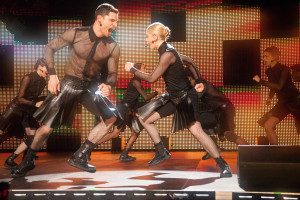Sarah Palin on Jeb Bush’s use of Spanish in conducting a town hall meeting in Florida recently:
“I think we can send a message and say: ‘You want to be in America? A: you better be here legally, or you’re out of here. B: when you’re here, let’s speak American.'”
Donald Trump was critical as well: “I like Jeb. He’s a nice man. But he should really set the example by speaking English while in the United States.” Later, he retweeted an attack on Bush for “speaking Mexican”.
Aside from the awkwardly incorrect naming of languages, the real bafflement here for me is why the Republicans would go out of their way to discourage their own candidates from trying to connect with Hispanic voters, a group the party badly needs for success in 2016. Jeb Bush may not be a super exciting candidate, and his views may not be conservative enough for many Republicans – while for others, his having actual experience holding political office is a clear disqualification – but he does seem like someone likely to attract at least some Latinos to vote Republican. Of course, that holds true potentially for Marco Rubio and Ted Cruz.
This is not just a Republican issue, and points to general views on the ability to speak other languages in the US. One would think that we would be happy to have our leaders be able to communicate directly with foreign leaders in a second language. In fact, US voters (and non-voters) tend to be suspicious of politicians who speak other languages. French seems to be particularly suspect. John Kerry downplayed his fluency in the language when he was a candidate for President and Mitt Romney was particularly loathe to admit to his ability in the language. Apparently one may be tainted with socialism by speaking French.
In the case of Spanish, many US citizens are living in denial that the country has become – and certainly will remain – multilingual, with large numbers of US citizens and non-citizens speaking Spanish as their mother tongue. If Republicans continue to embrace the views of this group of deniers, it seems likely they will again go down in defeat in 2016.

